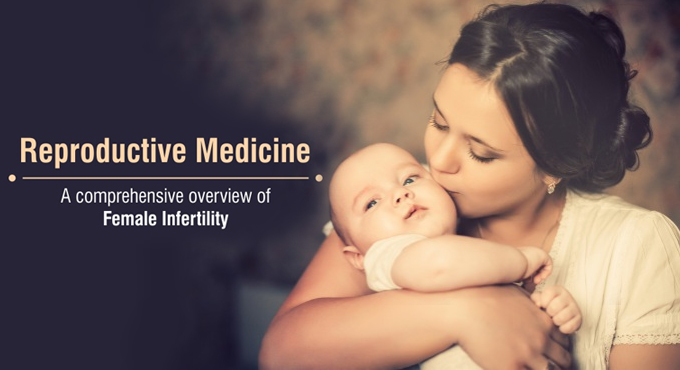
What is in vitro fertilisation IVF?
In vitro fertilisation (IVF) is a procedure that is used to improve the process of fertilisation. It is a complex series of procedures that are used to treat fertility or genetic problems and assist with the conception of a child. In this procedure, mature eggs are surgically removed from your ovaries and then they are fertilized by sperm in a laboratory. The fertilized egg (or eggs), which is now considered an embryo, is then implanted in your uterus.
When is it used?
The procedure of in vitro fertilisation is appropriate for following cases-
IVF procedure includes the following stages-
1. Stimulation and monitoring of ovaries-
In the ovarian stimulation phase, a woman will receive injectable hormones for a period of 10 to 20 days depending on the condition. The hormone therapy will stimulate your ovaries to produce more eggs than usual. The eggs develop inside fluid-filled cysts which are known as follicles. Intensive follow-up every three to four days by blood test and ultrasound are important for the appropriate medical treatment.
With the help of ultrasound scan reports and blood tests, your doctor will monitor your ovaries. Ultrasounds are usually performed after five days of hormone therapy to monitor the number and size of follicles produced. Usually, hormone therapy will continue till the follicles reach 18 millimeters or more in diameter.
2. Egg retrieval-
The next step after follicular development is egg retrieval which is done under short anesthesia. Using ultrasound guidance, follicle will be aspirated through the vagina, to identify mature eggs. The fluid is withdrawn from mature follicle. After looking at the fluid under a microscope in a laboratory, your doctor will check if there are enough eggs to proceed.
3. Fertilisation-
The next step in IVF process is fertilization. The insemination takes place after collection and classi?cation of eggs. A semen sample will be provided by the male partner. The sperm will be processed in laboratory to prepare it for fertilisation of egg. The egg insemination will be carried out by conventional in vitro fertilization in which sperm and egg unite in a plastic dish in laboratory using a special culture medium, providing that sperm parameters are normal.
Intracytoplasmic sperm injection (ICSI) will be used, if there are not enough sperm, or if the quality of sperm is poor. In this procedure, a single sperm is injected into egg with help of a micropipette. This procedure is performed using a special microscope. Then, inseminated eggs are cultured in an incubator with proper temperature, humidity and air control conducive to fertilization and embryo development.
4. Embryo transfer-
After fertilization and embryo development, the next step in IVF procedure is transfer of embryo. It is a process done to place embryos into the endometrial cavity by using a ?ne catheter that is passed through the cervix. It is a simple process that doesn’t require any anesthesia.
Generally, the procedure is monitored by a trans-abdominal ultrasound. The number of embryos to be transferred is determined by some factors such as age of patient, quality of embryos, and other related factors. Depending on the factors, embryos can be transferred three days after insemination, called cleavage stage and some of the embryos are transferred five to six days after insemination, called blastocyst stage. Two weeks after embryo transfer, a pregnancy test is administered. If desired, remaining embryos can be cryopreserved (frozen) in the lab for future use.
Pregnancy testing
Usually, two weeks after embryo transfer, pregnancy tests are performed by blood and urine testing. Once the pregnancy is determined, your doctors will see you during the early stages of pregnancy until the presence of heartbeat has been observed in fetus. During the first week, a blood pregnancy test is required every three days, and after that once a week.
IVF success rate-
The success rate of process of in vitro fertilization depends on many factors  which include maternal age, reproductive history, the cause of infertility, embryo status and lifestyle factors.
which include maternal age, reproductive history, the cause of infertility, embryo status and lifestyle factors.
Age factor-
Younger patients of in vitro fertilization are more likely to get pregnant when compared to older patients. Women at age 40 or more are more likely to get pregnant with a donor egg.
Reproductive history- In many cases, women who have been previously pregnant are more successful with IVF treatments as compared to those women who have never been pregnant. Today, IVF success rates are high due to advances in reproductive technology.
Singla Mediclinic (owned by Dr. Rimmi Singla & Dr. Raman Singla) IVF Center in Mohali, Punjab most established IVF clinic & fertility program, because we have highest success rates in Tri-city (Chandigarh, Panchkula, Mohali)
